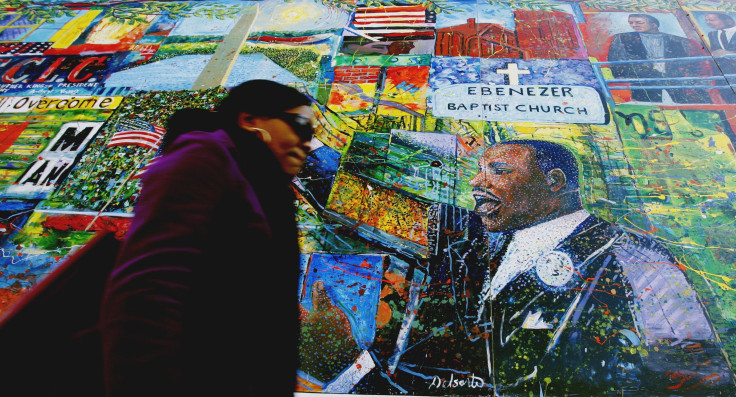Black History Month Facts: Interesting Trivia About The February Celebration Of African-Americans

The U.S. celebrates Black History Month in February to honor African-Americans' achievements and contributions to society. People and organizations across the country hold events to recognize pioneers such as Rosa Parks, Thurgood Marshall and Jackie Robinson. In its earliest form, the tradition is almost 90 years old, but some people don't know its origins.
Historian Carter G. Woodson established Negro History Week, which began Feb. 12, 1926. He scheduled it at that time to match up with the birthdays of Frederick Douglass and President Abraham Lincoln, according to the U.S. Census Bureau.
In 1976, Negro History Week became Black History Month. President Gerald Ford urged the public to "seize the opportunity to honor the too-often neglected accomplishments of black Americans in every area of endeavor throughout our history," according to the International Association of Official Human Rights Agencies.
Nowadays, every Black History Month has a different theme. This year, it is "A Century of Black Life, History and Culture." Below are 10 more facts related to the celebration:
1. Canada and the U.K. have their own Black History Months. Canada also marks it in February, but the U.K. marks its own in October.
2. Recent counts put the black population of the U.S. at 45 million. New York has the highest number of black residents, with 3.7 million, while Washington has the highest proportion of African-Americans, with 51 percent.
3. There are 46 black members in the 114th Congress, the Hill reported. The first black senator was Hiram Rhodes Revels, who represented Mississippi from 1870 to 1871, and the first black congresswoman was Shirley Chisholm, who represented New York during seven terms.
4. "The Renaissance" was the name of the first black professional basketball team. They were nicknamed the Rens and once won an amazing 88 consecutive games.
5. Lincoln University in Oxford, Pennsylvania, became the first degree-granting historically black university in 1854. Now, the U.S. has 106, including Florida A&M University in Tallahassee, North Carolina A&T University in Greensboro and Howard University in Washington.
6. The first black astronaut was Robert Henry Lawrence Jr., but he died before he could travel to space. The first black astronaut in space was Guion Bluford in 1983.
7. A portion of Martin Luther King Jr.'s famous "I Have A Dream" speech was improvised. At one point, he pushed his papers aside and "turned his speech into a sermon," PBS noted. "All of a sudden, this thing came to me that I have used -- I'd used it many times before, that thing about 'I have a dream' -- and I just felt that I wanted to use it here," King said later.
8. Potato chips were invented by a black man. In 1853, a restaurant customer sent his French fries back to the kitchen because they were too thick. The chef, George Crum, cut a bunch of potatoes as thin as he could, fried them crisp in anger and, voila, the potato chip was born, according to howstuffworks. The golf tee, gas mask and modern blood bank were also invented by African Americans.
9. The first black Nobel Peace Prize winner was Ralph J. Bunche, who won in 1950 for his mediation efforts in Palestine. The first black Oscar winner was Hattie McDaniel for her portrayal of Mammy in "Gone with the Wind." She won as best supporting actress.
10. Robert Abbott became the first black millionaire after he founded the weekly newspaper, the Chicago Defender, in 1905. BET founder Robert L. Johnson became the first black billionaire in 2000.
© Copyright IBTimes 2024. All rights reserved.












